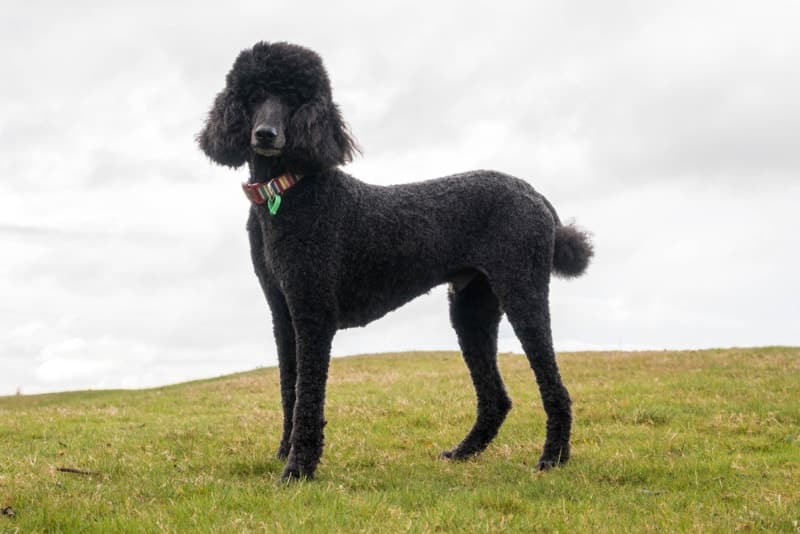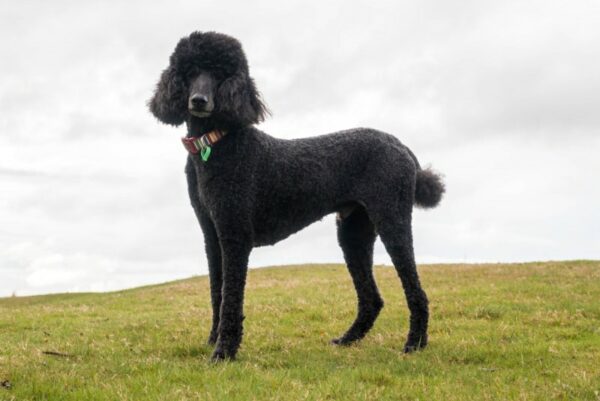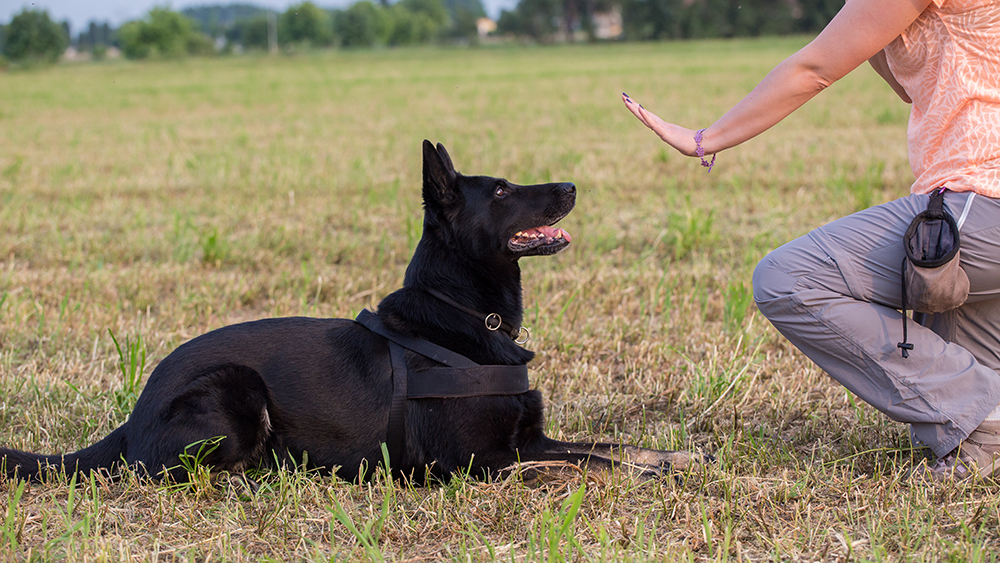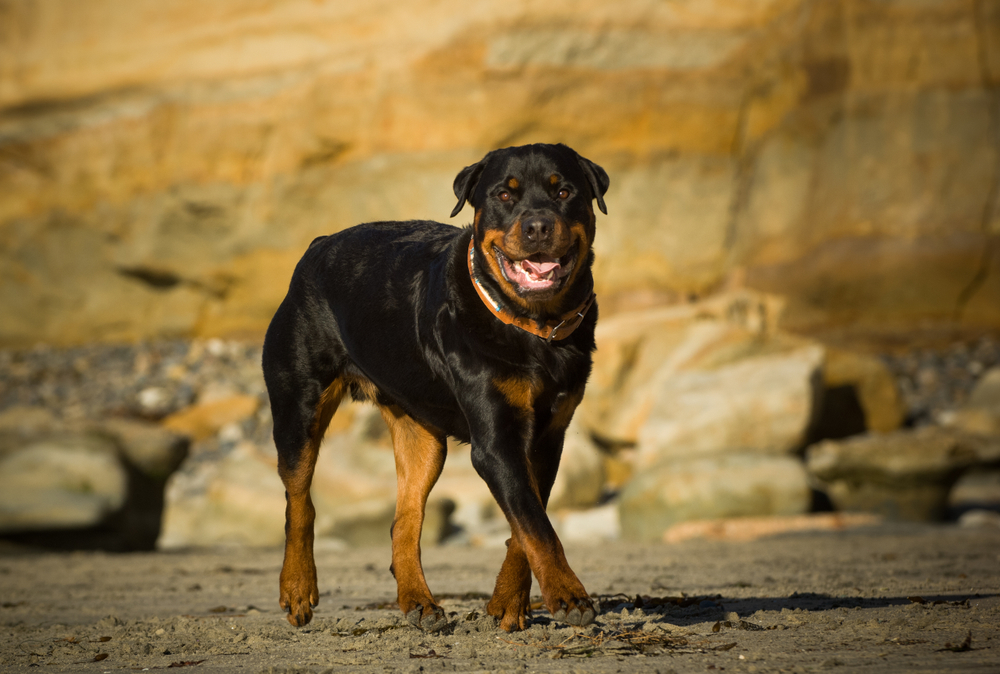Click Below to Skip Ahead
Poodles may be stereotypically “sassy.” However, they are actually exceptionally athletic. These large, intelligent dogs are known for their curly coats. Originally built for retrieving, these dogs are still very active and intelligent today. They learn things very quickly, but they can be prone to boredom.
Breed Overview
Height:
18–24 inches
Weight:
45–70 pounds
Lifespan:
12–15 years
Colors:
Black, white, brown, apricot, silver, cream, red, grey
Suitable for:
Active families with children
Temperament:
Intelligent, energetic, affectionate, loyal
While Poodles can make great companion animals for the right family, they can also be a lot of work. Their coats require regular brushing and trimming. They need tons of exercise due to their energetic nature, and their intelligence makes them get bored easily.
However, lovers of the Poodle point out that they don’t shed and take to training very easily. They’re also friendly and affectionate to their families, including children. These dogs require the right family to take care of them. But when they are properly cared for, they can be great additions to the right family.
Standard Poodle Characteristics
Standard Poodle Puppies
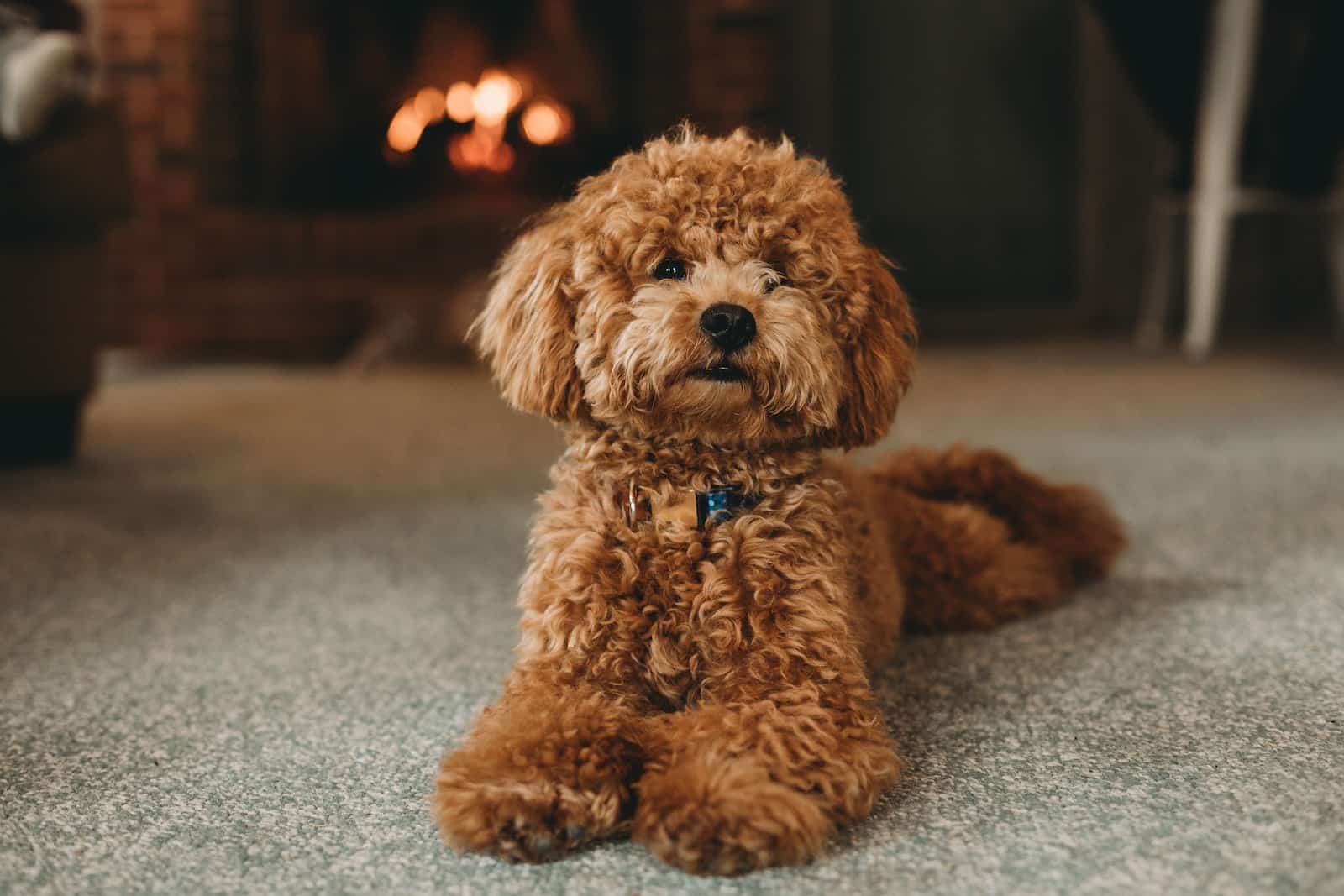
Standard Poodle puppies are a lot like any other puppy. They’re very energetic, but they tend to sleep a lot, too. Zoomies and boundless enthusiasm are both to be expected. These dogs are also born smart, so their intelligence shines through early. We highly recommend starting training right away to channel their intelligence and encourage good habits.
Early socialization is also crucial, even if these dogs are on the friendly side. If you want them to be well-adjusted as adults, it’s important that they are exposed to many people, places, and animals from a young age.
Standard Poodles are sometimes available from rescues and shelters. While these dogs may come from unknown backgrounds, it does provide you the opportunity to rescue a dog in need.
The more common route to adopting a Poodle puppy is to go through a quality breeder. Choose a breeder that prioritizes health and temperament over profit. Waitlists are common, and the cost of a standard Poodle can be high. However, you’re paying for the quality of the puppy.
Temperament & Intelligence of the Standard Poodle 🧠
Standard Poodles are known for their extremely high intelligence. In fact, they are one of the most intelligent breeds in the world. They excel in training and learning commands quickly. In fact, they’re commonly used as service dogs for this reason. Their intelligence also allows them to adapt to many environments effortlessly. They tend to be less anxious than many other breeds for this reason.
While they are often pretty intelligent, they can also be stubborn and independent, especially when they reach their juvenile stage. They require consistent training and mental stimulation to prevent boredom and keep them on their toes. If they become bored, they’re likely to tune you out.
When raised properly, these dogs bond strongly with their families and crave human interaction. They’re eager to spend time with their families and cuddle them profusely. If socialized, they extend this friendliness to others. They enjoy playing with their families especially.
Standard Poodles can also be pretty alert and watchful. If they notice anything off, they’ll be sure to report it to their owners. While they aren’t aggressive, they can tell the difference between someone who should be in your yard and someone who shouldn’t.
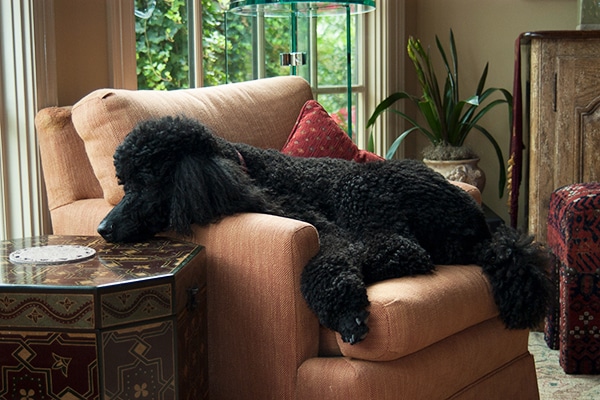
Are These Dogs Good for Families? 👪
Standard Poodles can be great family dogs. They crave human interaction and love to play with children. They’re also exceptionally gentle and calm when exercised properly, making them suitable for families with children. However, their larger size can make them a bit of a hazard when they are excited, so keep that in mind if you have smaller children.
These dogs learn quickly and are very eager to please. Teaching them manners around the house is very straightforward. Plus, tricks are always fun to share with children. Poodles also form strong bonds with their family, becoming very loyal at an early age.
That said, Poodles can also be a lot for some people to handle. They require plenty of walking and playtime. They can also become bored easily, so they need more entertainment than other dogs. Their thick, curly coats require professional grooming once a month and daily brushing, which can be a lot for many families to handle.
Because of their larger size, they don’t always work well with smaller children. Dogs that are hitting puberty can be a bit hyperactive and may not understand just how big they are. They may accidentally injure children by running around the house.
Does This Breed Get Along with Other Pets? 🐶 😽
Standard Poodles do get along with other pets when properly socialized. They won’t always get along with other pets, especially if not introduced to many other pets when they are young.
Poodles are naturally friendly, so they tend to get along with other animals. They don’t have a super high prey drive, allowing them to get along with cats. They’re also eager to please, so you can train them to accept other animals with ease. Their high intelligence allows them to learn and understand the rules pretty easily.
Proper socialization always helps these dogs get along well with others, so we highly recommend socializing them as early as possible.
However, every Poodle is unique. Some Poodles find it easy to get along with other animals, while others may have a higher prey drive. When introducing your dog to others, always do so cautiously and in a controlled manner.

Things to Know When Owning a Standard Poodle
Food & Diet Requirements 🦴
Standard Poodles do not require any specific food or diet requirements. They work well on high-quality dog food designed for larger dogs. It is important to choose food designed explicitly for large dogs, though, especially when they are puppies.
Larger dogs simply have different nutritional needs from smaller dogs. If fed improperly, large dogs may be at a higher risk of hip dysplasia, which is sadly very common amongst all larger dogs, including Poodles. We highly recommend feeding quality food made for big dogs.
Puppies must be fed puppy food, too. They need different nutrition from your average adult, as they are still growing. Once your dog has reached almost their full size, you can switch to adult dog food. There isn’t necessarily a time when you have to switch to a senior dog food, though. These dog foods are often made with specific senior health problems in mind. However, there isn’t a specific age when your dog will develop these health problems.
Poodles are very active. Therefore, they may need food formulated for very active dogs. This food contains high amounts of calories and protein, which more active dogs need in higher amounts. You’ll need to keep an eye on your dog’s body condition to determine if they need more or fewer calories. You can also talk with your vet, who can weigh your dog to determine if they are under or overweight.
Occasionally, Poodles may develop health issues that require specific nutrition. In this case, you’ll be able to discuss your dog’s special nutritional needs with the vet.
Exercise 🐕
Poodles are exceptionally active. They’re renowned for their high energy levels and athletic ability. Therefore, to stay happy and healthy, they require a committed exercise routine. You’ll need to provide at least 90 minutes of exercise a day. Typically, we recommend splitting this into two or three sessions.
Repetitive activities can help keep your poodle engaged and prevent boredom. These dogs get bored very quickly, so be sure to use their exercise routine to keep their mind entertained, too.
Puppies typically need less exercise than adults. However, they may need more exercise sessions. Adults often do well with 45 minutes twice a day, but puppies may need 15 minutes five times a day. Puppies tend to bounce back from exercise fast, but they also tire quickly.
Seniors tend to slow down, but keeping their activity level high can help keep them healthy. Don’t stop exercising your dog altogether just because they have slowed down a little bit.
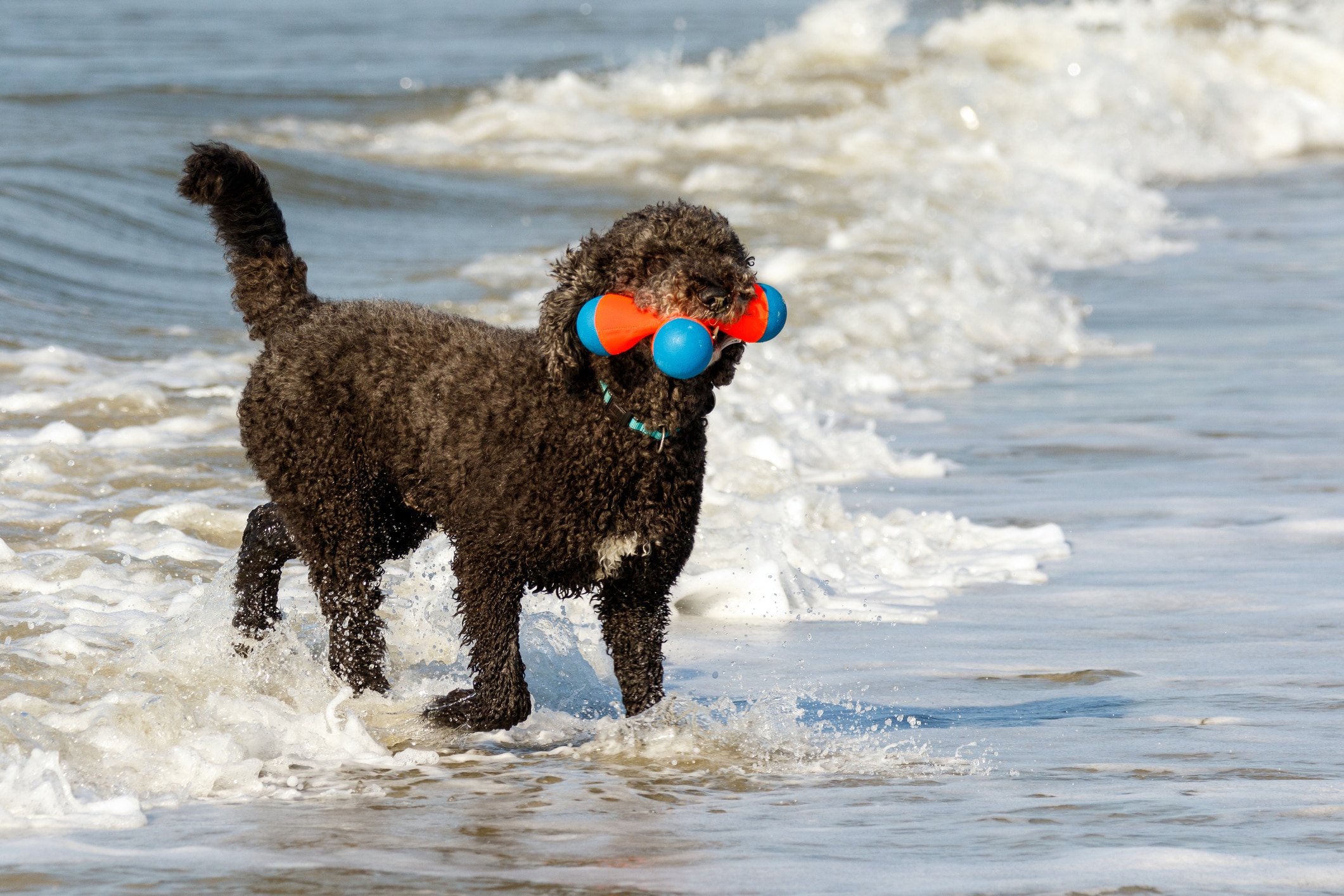
Training 🎾
Standard Poodles excel in training. They’re both eager to please and highly intelligent. Plus, they’re very friendly and sensitive to praise, allowing you to reward them with ease. Use positive reinforcement to train them early and quickly. Avoid punishment, as it may make Poodles ignore you altogether.
As soon as you bring your dog home, you should start training them. 8 weeks is not too early, and many breeders will start training their puppies before they even send them to their forever home. These dogs learn basic commands like sit, stay, and come relatively easily.
Always keep training sessions short. Start at only 5 minutes and work up to 10 minutes as your dog is able. These dogs get bored and need to work their brains. If you don’t, they’ll make their own entertainment, which is often not what you want them to do. Training should also be fun. Poodles will take a liking to training naturally, but they will be turned off if you use punishment or push too much.
While Poodles are easy to train, it’s still important to be patient. They may not pick every command up quickly. All dogs have weak spots that must be worked on.
Grooming ✂️
As you probably know, Poodles need tons of grooming. They’re known for their beautiful, curly coat, but this impressive feature needs dedicated grooming. Daily brushing is absolutely necessary. Brushing your poodle every day helps prevent matting and keeps them clean. A quick brushing session can go a long way to removing dirt and debris, limiting the number of baths your dog needs.
You’ll need a slicker brush and a comb to work through your dog’s coat. Be gentle and section the coat to avoid missing any areas. Unless you happen to be a groomer yourself, you’ll need to get your dog professionally groomed every month or so. They need constant trimming, as their coat will simply keep growing. The groomer can also care for their nails and give them a bath, limiting the amount of grooming you must do at home.
You’ll also need to brush your dog’s teeth regularly. Brushing their teeth helps maintain good dental health and prevents dental disease, which is sadly very common for all dog breeds.
While puppies don’t need as much grooming as adults, you should still start grooming them early. This process prevents them from being scared of the brush later on. Use positive reinforcement and make those early sessions more about training than actual grooming.
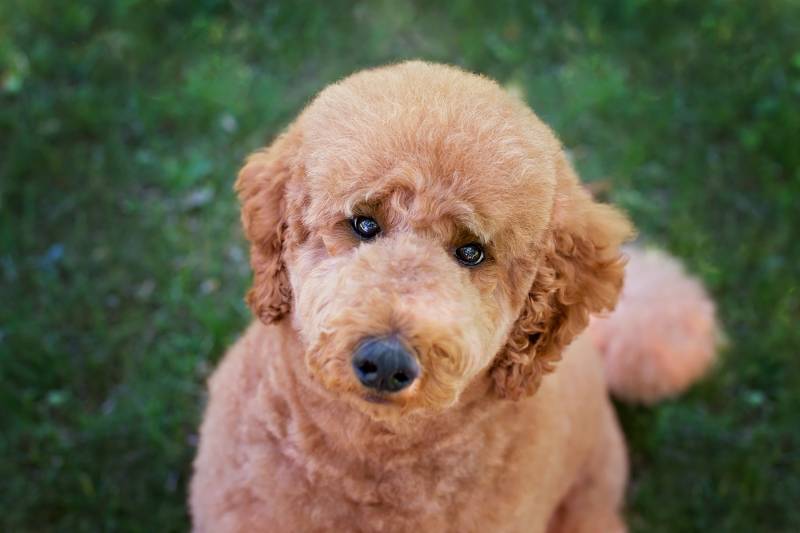
Health and Conditions 🏥
Standard Poodles were bred as working dogs. Therefore, they’re pretty healthy and can live up to 15 years—much longer than many other large breeds. However, these dogs can still get certain health issues, some of which are very serious.
Hip dysplasia is the most common condition affecting Poodles. This condition occurs when the hip joint doesn’t form correctly, leading to wear and tear. Arthritis-like symptoms occur at a very early age, requiring constant management for the rest of the dog’s life. Around 12% of poodles end up with hip dysplasia.
Poodles can also get bloat, which is a serious, life-threatening condition. It occurs when the stomach twists and traps air, causing it to expand. Eventually, the stomach cuts off blood flow to the surrounding tissues. This condition can cause irreversible harm in only a matter of hours, so emergency surgery is required.
Addison’s disease is a genetic, autoimmune disorder that affects hormone production. It is chronic and does not go away. However, it can be managed through medication when diagnosed early.
Due to their floppy, hairy ears, Poodles can also develop ear infections. Their ears can trap moisture and harbor bacteria. Regular early cleaning and vet checks are absolutely necessary. If your dog’s ears seem dirty, you can clean them with a wet cotton ball.
- Ear infections
- Allergies
- Hip dysplasia
- Bloat
- Addison’s disease
- Thyroid issues
- Progressive retinal atrophy
Male vs. Female
Male standard Poodles are larger than female Poodles. However, that is where their differences stop. While some claim that there are temperament differences between male and female Poodles, none of these are proven.
Most differences beyond size occur due to hormones. Males may be more likely to mark their territory, and females go through personality changes when in heat. Females may also shed more when in heat, while males have a more even shedding pattern. Both genders may be more prone to specific health conditions, too.
However, when spayed and neutered, these differences decrease or even disappear altogether. Females won’t go into heat, so they won’t experience personality changes. The males won’t be driven by testosterone, so they’ll be less likely to inappropriately mark.

3 Little-Known Facts About the Standard Poodle
1. They are retrieving dogs.
Most people see Poodles as “pretty” dogs who sit around and look nice. However, they were actually bred to retrieve waterfowl from ponds. They have a thick, water-resistant coat and webbed feet to make swimming in cold water easier.
2. They can also hunt truffles.
Poodles are also one of the best truffle-hunting dogs. Their keen sense of smell and trainability allow them to sniff out truffles with ease. These truffle dogs are exceptionally valuable due to the price tag of truffles.
3. Poodles are very popular subjects for paintings and sculptures.
Especially in France, Poodles are very common subjects for the arts. Their unique haircuts and regal appearance make them fun subjects, and many famous artworks today come from the area where poodles were well-known.
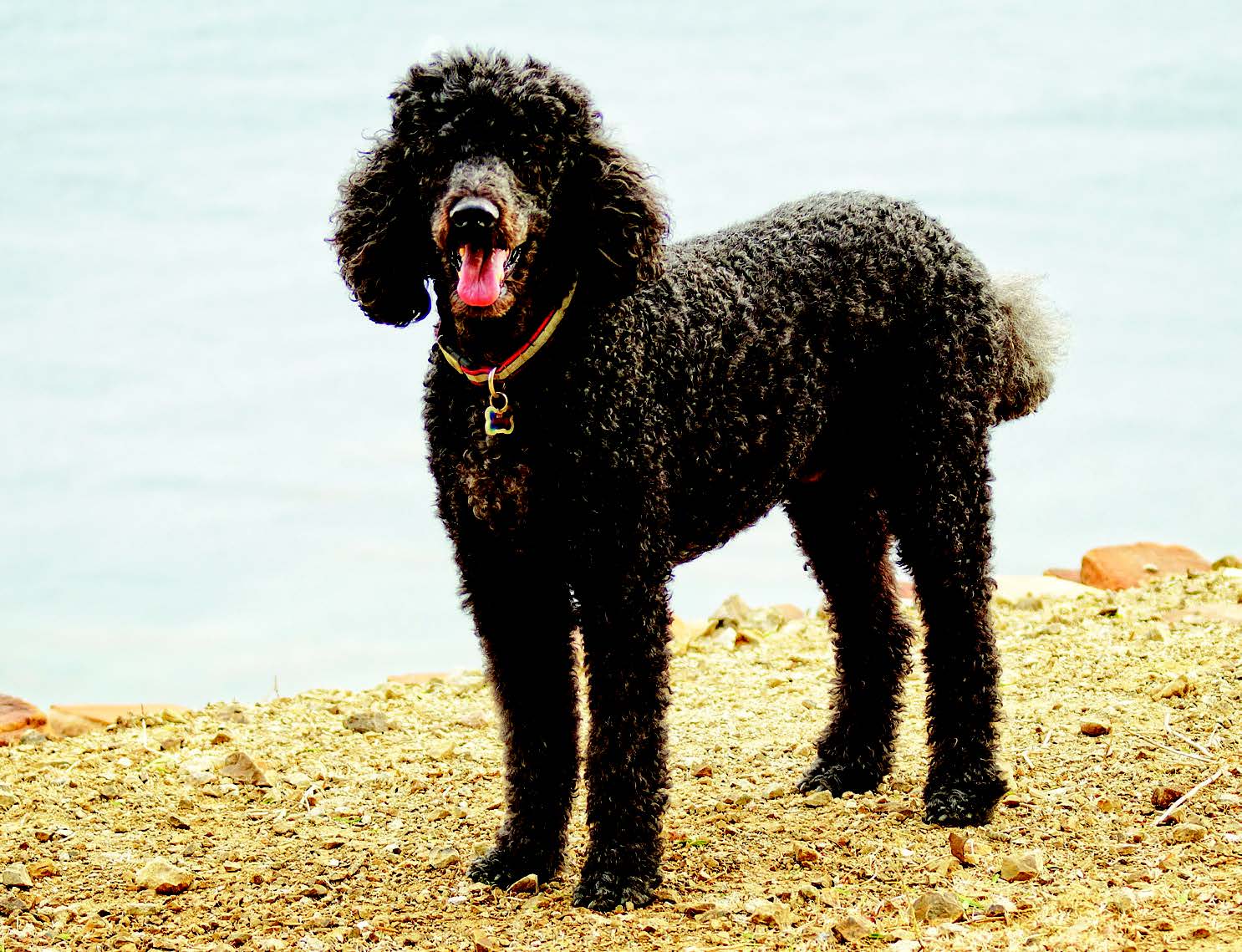
Final Thoughts
Poodles are well-known dogs, but most people don’t realize how active and intelligent they are. In fact, they are one of the most active, intelligent dog breeds around, making them great at a wide range of jobs. They’re used for retrieving waterfowl, as service dogs, truffle hunting, and as family pets. Their high intelligence makes them exceptionally adaptable.
For active families, Poodles can be one of the best companion dogs. However, for others, they can be a bit much. Poodles can be hard to deal with when not properly exercised or trained.
Therefore, we only recommend them for dog owners with plenty of time on their hands.
Featured Image Credit: Danica Chang, Shutterstock

